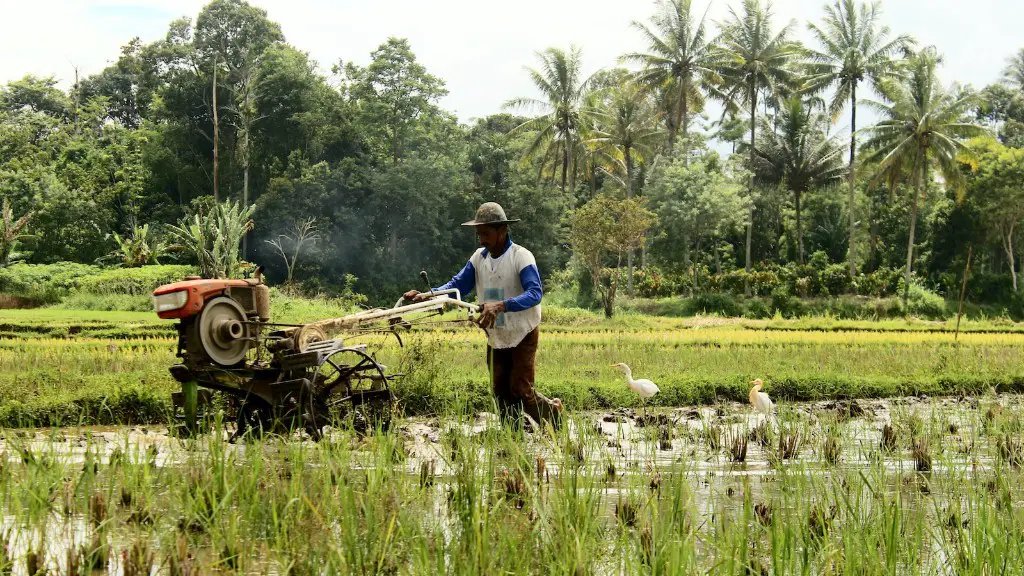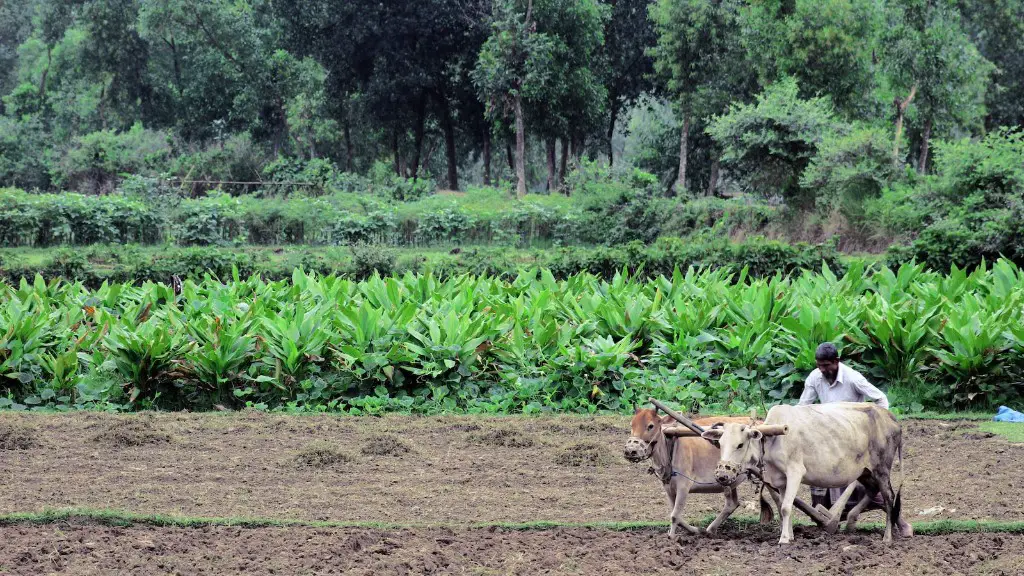Agriculture is the backbone of our economy for a number of reasons. First, agriculture is the largest sector of our economy, accounting for nearly a quarter of our gross domestic product. Second, agriculture is the largest employer in our economy, providing jobs for nearly one-third of our workforce. Third, agriculture is the most important export sector in our economy, accounting for nearly two-thirds of our exports. fourth, agriculture is the largest sources of revenue for our government, accounting for nearly a fifth of our government’s total revenue. Finally, agriculture is the most important sector of our economy in terms of food security, as it provides the vast majority of the food we consume.
The United States has a rich history of agriculture that dates back to the early days of the country. Agriculture has long been the backbone of our economy, providing the majority of the food we eat and the raw materials we need to build our homes, schools, and businesses. Today, agriculture remains an important part of our economy, providing jobs for millions of Americans and contributing billions of dollars to our GDP.
Why agriculture is called the backbone of economy?
Agriculture is one of the most important sectors of the Indian economy. It contributes 16% of the overall GDP and accounts for employment of approximately 52% of the Indian population. Rapid growth in agriculture is essential not only for self-reliance but also to earn valuable foreign exchange.
The government has taken several initiatives to promote growth in the agricultural sector. These include providing subsidies and incentives for farmers, investing in infrastructure and R&D, and creating enabling policies. However, more needs to be done to make the sector more productive and sustainable.
The private sector also has a critical role to play in boosting agricultural growth. Through investments in technology, training and capacity building, and by partnering with the government, the private sector can help make Indian agriculture more competitive and efficient.
Agriculture indeed is the backbone of Indian economy. It is the sector that engages majority of Indian population and provides raw materials to a number of industries. The fact that it is the backbone of Indian economy can be attributed to its contribution to the GDP. Agriculture sector accounts for around 17-18% of India’s GDP.
Why is agriculture economy important
Agriculture impacts society in many ways, including: supporting livelihoods through food, habitat, and jobs; providing raw materials for food and other products; and building strong economies through trade. Agriculture is a vital part of our society and it is important to understand how it impacts us.
It is amazing to realize how agriculture impacts our lives. Food and fiber products play a major role in each part of our lives and without them we would perish. Agriculture is the main source of food and fiber for people around the world and it is also a major source of income for many countries. Agriculture has a major impact on the environment, economy, and society.
What are 3 reasons why agriculture is important?
Agriculture is important for many reasons. It is the main source of raw materials for industry, it is crucial to a country’s development, it can help heal the environment, and it is important to international trade. Agriculture also provides employment for millions of people around the world.
Entrepreneurs are the backbone of the economy. They are the ones who introduce new products, production methods, and business strategies to the market, thereby boosting productivity and competition while creating employment. Entrepreneurs are vital to the health of an economy.
How can we say that farmers are the backbone of economy?
Agricultural production plays a vital role in the Gross Domestic Product (GDP) of a country. It is the primary sector of the economic sector and contributes greatly to the final outcome of the country in every way. Farmers play a crucial role in the agricultural sector and their contribution cannot be denied. They work hard to produce quality products that are exported to the international market.
Agriculture is the primary source of raw materials for many industries, including cotton and jute fabric, sugar, tobacco, edible and non-edible oils. Other industries that rely heavily on agricultural raw materials include fruit and vegetable processing, rice husking, and more. Without a thriving agricultural sector, these industries would not be able to function.
What are the 10 benefits of agriculture
Agriculture is one of the most important sectors in Nigeria. It provides food for human consumption, raw materials for industries, employment for labourers, and contributes to the country’s foreign exchange earnings. Agriculture also helps to preserve the environment and protect various species of plants and animals.
Farming is a great way to get fresh produce and stay healthy. It can be challenging work, but it is also stimulating. Farming provides a source of income for rural areas and can help to develop younger generations. Farming can also help the environment thrive.
Why is agriculture important to human society?
Agriculture is the practice of producing food, feed, fiber and other desired products by the systematic raising of plants and animals. Agriculture is the primary means by which humans meet their basic needs for food, clothing and shelter. Agriculture also provides fuel, wood for construction and paper products. The products and methods used in agriculture vary from one part of the world to another, depending on the climate, soil type, topography and local resources.
The growth of the agricultural sector has a positive impact on employment and food security in rural areas. Most farm households supplement their income with earnings from non-farm activities, which results in an immediate reduction in poverty and hunger. The studies show that the agricultural sector is a powerful engine of economic growth and development.
What are 4 benefits of agriculture to a country
From a very broad perspective, agricultural products serve as the foundation for human civilization. The basic needs for human survival; food, shelter, and clothing, are all dependent on agriculture for their production. Raw materials such as crops for food, silk for cloth, and wood for shelter, all come from agriculture.
On a more personal level, agricultural products are essential for the daily sustenance of billions of people around the world. For many people, their only source of food is what they can grow themselves or what they can trade for. In many parts of the world, agricultural land is the only piece of property that someone owns.
Whether we realize it or not, all of us are impacted by the agricultural industry in one way or another. The next time you sit down to a meal, take a moment to think about the long chain of events and the many people who had a hand in getting that food to your plate.
The manufacturing sector is critical to both the general development of a country and its economic development. The manufacturing sector provides the bulk of the country’s exports, and is also a major source of employment and innovation.
What is the positive impact of agriculture?
Agriculture can both positively and negatively impact the environment. On the positive side, agriculture can trap greenhouse gases within crops and soils, or mitigate flood risks through the adoption of certain farming practices. On the negative side, agriculture can pollute soil, water, and air.
Agriculture is the primary source of raw materials for many key businesses. This includes businesses that deal in cotton and jute fabric, sugar, tobacco, and edible and non-edible oils. These businesses are critical to many industries, including the drugs, diesel fuel, polymer, and other significant sectors. Without the raw materials provided by agriculture, these industries would not be able to function.
Warp Up
There are a few reasons for this. First, agriculture is the main source of food for most people. This means that it is essential for sustaining life. Second, agriculture is a major source of employment. In many countries, it is the main source of income for people. Third, agriculture is a major source of export earnings. This is especially important for developing countries that rely on agriculture for a large portion of their GDP.
Agriculture is the backbone of our economy because it is the primary sector that produces food and other raw materials. Without agriculture, our economy would collapse.





